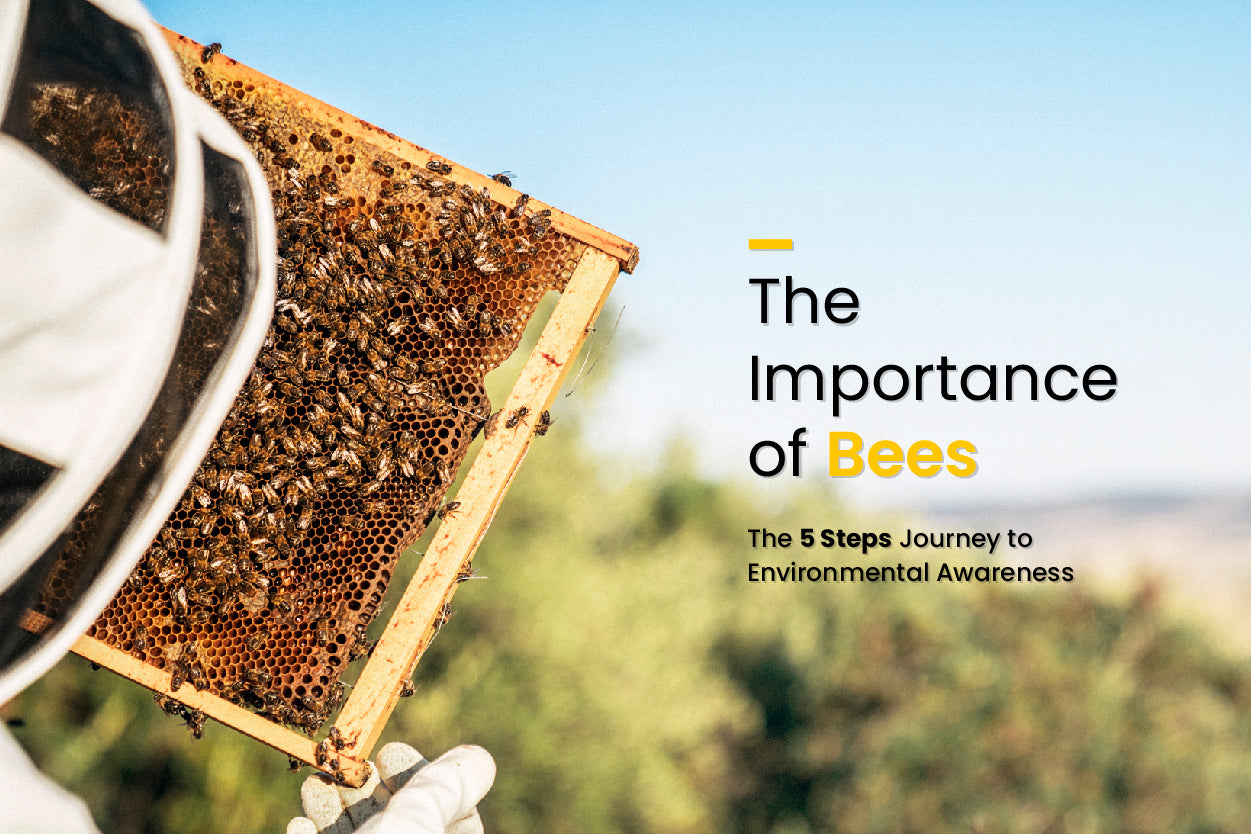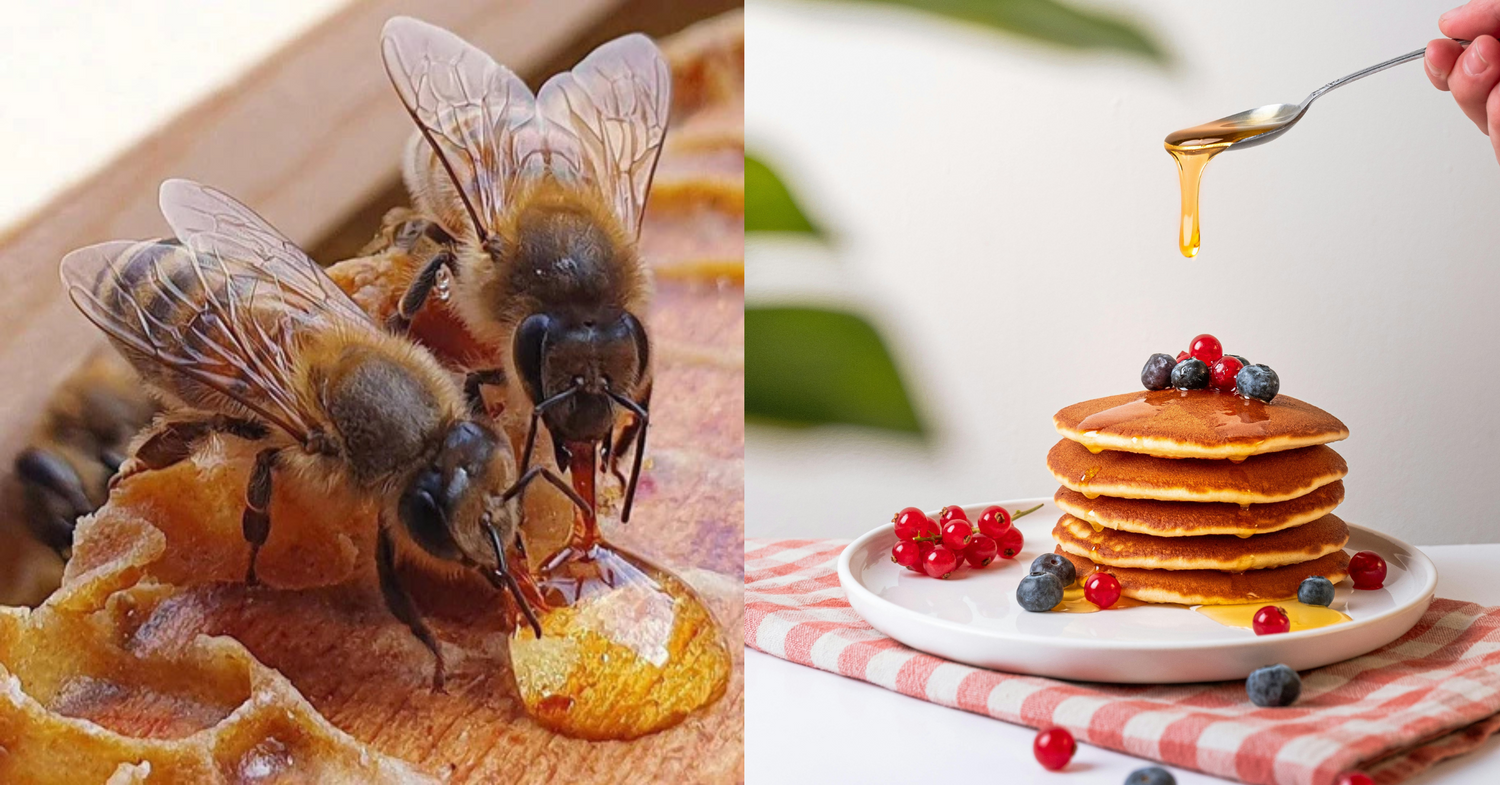Did you know that we share this world with 20 000 different bees species? And these magnificent creatures have captivated us since early times! For ancient Greeks, bees symbolized immortality, while others believed them to be sacred insects that bridged the natural world to the underworld. Countless generations also enjoyed the medicinal properties of honey. Yet, one of nature's most essential creations now faces danger like never before.
We invite you to take this 5-step journey with us to realize how important bees are. And to be inspired to spread the message or take action.
Before We Start: What's The Real Situation with Bees?
Before we dive deeper, it is essential to recognize the factual status and the cause. These are the two most important factors that will start shaping your awareness of bees and their importance.
1. What's The Status of Bee Population?
Bee population status varies across bee species, different countries, and areas. However, the UN observation revealed that current bee species face extinction rates 100 to 1,000 times higher than usual due to human impact.
Overall, around 30-40% of all pollinators, especially butterflies and bees, are being in danger of facing extinction.
2. What's The Cause?
One of the most impactful reasons is climate change which causes chaos in usual processes in nature. Some flowers bloom earlier or later than they should, thus leaving bees with fewer food sources.
Bees also suffer habitat loss from rapid urbanization, agriculture, and other human-caused developments. Meanwhile, other colonies collapse due to plants and seeds being treated with pesticides.
But there are many other factors that we may not even realize. For example, a Canadian researchers' study conducted in 2015 estimated that around 24 billion bees and wasps are killed by vehicles across North American roads every year. Sometimes, bees even suffer from organized vandalism!

Step 1: Food Security For Ever Growing Human Population
We begin with one of the essential steps in realizing how important bees are. With the growing concern of a rising human population, the demand for bee pollination is the highest it has ever been.
Bees visit more than 90% of the world's top 107 crops, which essentially means that bees are responsible for at least one out of every three bites that we take in our food.
But the food security provided by bees doesn't end here. Bee pollination also contributes to the higher nutritional value of our food, improved food quality, and longer shelf life.
Step 2: Stability in Economy & Jobs
This aspect might be overlooked, but the economy, income, and jobs are just as important. In the US alone, bees pollinate around $15 billion worth of crops annually! These crops include melons, zucchini, almonds, and other crops such as courgettes.
California is a perfect example. Here, around two million bee colonies are needed to produce the Californian almond alone.
Yet, this is just one example in a global arena where bees produce honey and other products that translate into thousands of jobs and small businesses.

Step 3: Cultural & Societal Importance
Bees are brilliant, and we can learn a lot about them and from them. Throughout history, cultures and societies have applied various mannerisms and interactions based on bees' behavior.
Don't believe us? Take a look at this example, where researchers studied bees' actions to develop emergency and evacuation strategies in overcrowded environments!
The honeybee is also a way to explore history and discover ancient cultures. Who knew that honey products were already popular during the stone age.
Step 4: Balance & Diversity in Nature
We are not the only ones whose food security depends on bees. In wild forests, various woodlands, savannahs, and other geological areas, bees produce berries, seeds, fruits, and other foods for animals to eat.
Pollinators such as bees are strong influencers that nurture an essential relationship with ecosystems. Bees majorly contribute to the conservation and stability of ecosystems while providing genetic diversity in plant and animal life.
In the end, bees are one of the critical guardians that keep the balance and diversity in nature's kingdom.
Step 5: Medicinal Properties
Human health and bees have been related since ancient times. Honey alone has plenty of health benefits and medicinal properties to aid digestion, soothe a sore throat, and many more.
Alongside honey, bee venom is also a historic element in researching and producing health appliances. Today, bee venom is mainly used for skincare and can even eliminate cancer cells.
Bees have aided humanity and made our lives that much sweeter for thousands of years! And it only fits that we preserve and treat bees with respect and an open heart.

How Can You Contribute?
If you have a backyard, make it a little lusher and grow a beautiful garden with native flowers to make more available vegetation for the bees in your area.
If you influence the developing process in your town or city, consider that humans and bees could also use more green spaces inside urban areas.
Nonscientists and volunteers can also contribute to research through various initiatives. One such instance happened in 2020, where gardeners were invited to attend workshops and perform a study that revealed that squash bees occupy a wide geographic range and prefer farms with minor soil disturbance.
We at Jungle House are more than proud to contribute to the cause by providing bees with a safe house in the jungle and supporting the bee farmer communities. Let's raise awareness together!
Conclusion
Environmental awareness essentially serves as an educational tool, helping people worldwide understand the economic and biological importance of preserving important species such as bees. Spread the message around, participate in environmentally-friendly activities, buy mindfully and help conserve our nature's precious – bees.






